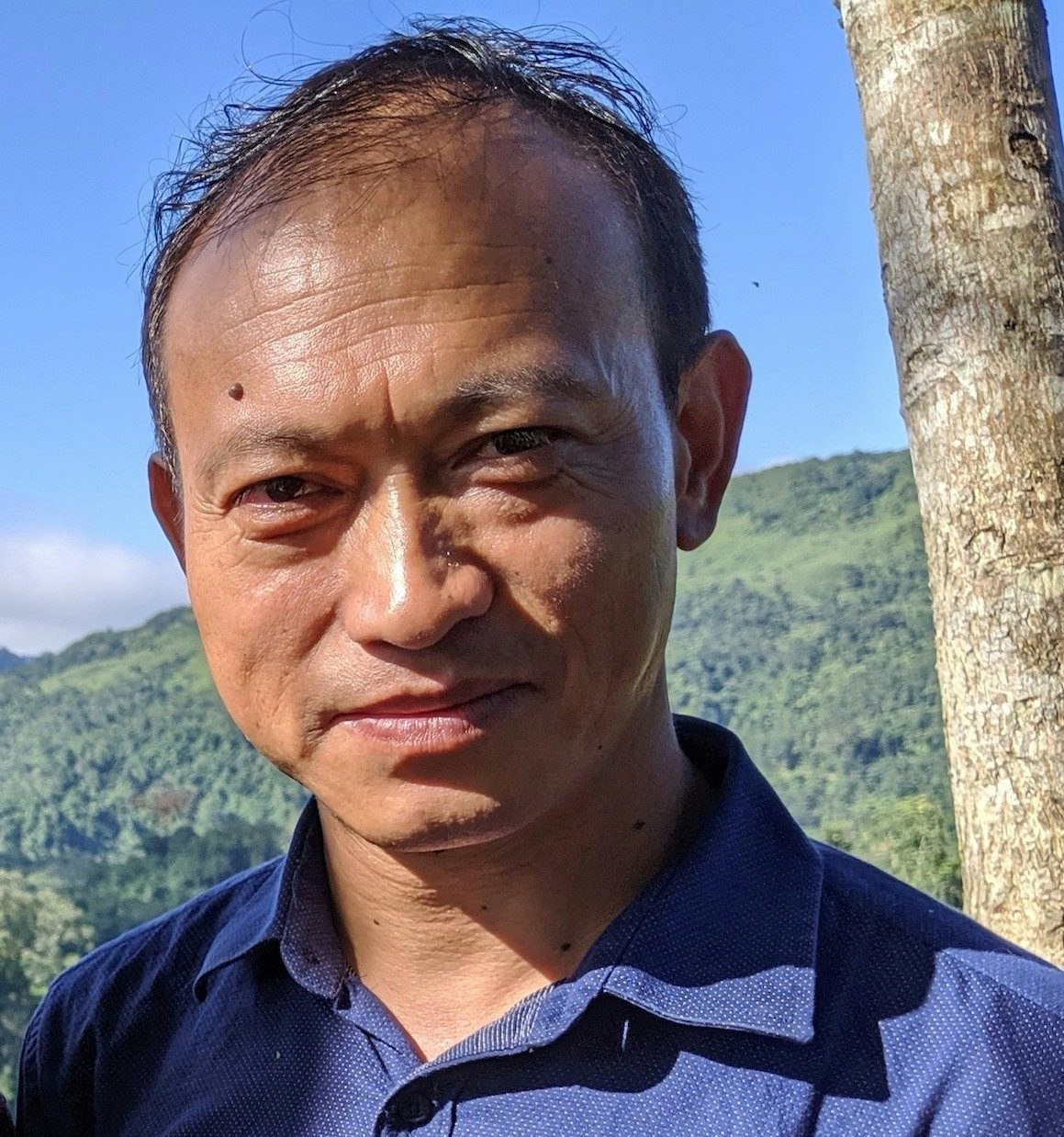With his Whitley Award, Nuklu and his team will create a network of community-owned forests, to fortify the rich biodiversity and culture of Nagaland.
HUNTING HISTORY
Nagaland, part of the Indo-Burma Hotspot, is home to the Naga: Tibeto-Burman people who share their mountainous, forested state with a rich diversity of wildlife. Communities have historically hunted wild animals for food and medicine, but in the last few decades a surge in unemployment, unsustainable management and shifting cultural priorities have put pressure on natural resources. The worrying drop in biodiversity has received little international attention.
FALCON FLAGSHIP
Amur Falcons arrive here as part of their migration to feast on the abundance of emerging termites. They act as important bio-control agents, protecting crops by keeping termite numbers in check. However, some people have recently begun hunting and selling the falcons in large numbers, with 14,000 individuals killed annually in one village alone. Nuklu and his team at the Lemsachenlok Society want to offer alternatives that engage communities in conservation using the Amur Falcon as a flagship. Since the project began in 2007, three reserves have been set aside and the number of roosting falcons has risen dramatically.
TRIBAL TRADITIONS
Nuklu’s expanded Biodiversity Peace Corridor will incorporate 16 villages across four districts. By switching to sustainable, non-extractive land-use practices, his team can ensure that the area supports both biodiversity and livelihoods, uniting some of India’s economically-constrained communities through a common cause. Nuklu will also revive the tribal education system and enable elders to teach traditional knowledge to the younger generation. He is a true grassroots hero.
Nuklu and his team will:
- Establish 16 community conservation areas as part of a Biodiversity Peace Corridor spanning 200km2.
- Stop hunting, dynamite fishing, logging and slash-and-burn cultivation in the reserves and provide eco-friendly alternatives to allow forest regeneration.
- Train villagers in sustainable land-use including fruit orchards, piggeries and ginger production, benefitting 4,000 households.
- Initiate conservation efforts for the Amur Falcon as a flagship species, monitor its roosts and document the area’s biodiversity.
Top facts:
- An estimated 50,000 Amur Falcons roosted in 2010, increasing to as many as 1,000,000 individuals in 2019 thanks to Nuklu’s success.
- The community conservation areas are rich in fauna and flora including pangolins, hornbills and Asiatic black bears.
- Nagaland has the highest rate of unemployment in India due to its history of inter-ethnic conflict, struggle for independence and a lack of job opportunities from government.
“The Amur Falcon migrates across continents – a journey that represents a free world without borders.” Nuklu Phom
Image credits: Bollingbroke Kent (Yaongyimchen village, Nuklu Phom), Dylan Vasapolli – Birding Ecotours (Amur Falcon in flight). Film credits: Sandesh Kadur / Felis Creations, Icon Films.






